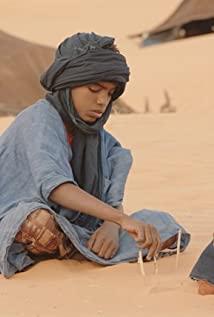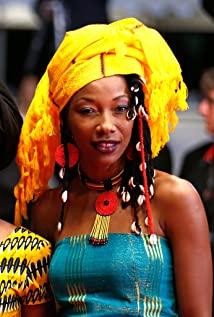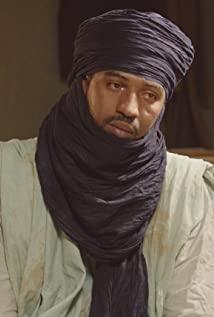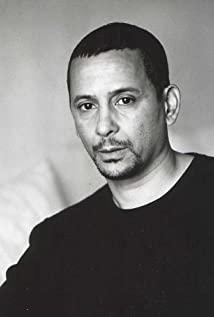Viewing location: China Film Museum French Film Week
Viewing time: March 25, 2017 at 14:00 pm
The real Timbuktu is a remote town with a population of more than 20,000, historically a trade and cultural center , was the center of the spread of Islam in Africa in ancient times, and today there are still several mosques and universities that contain precious Islamic religious books. A region in the West African country of Mali. Also translated as "Dingbouctou", now known as Timbuktu (Tombouctou), located in the center of the desert in a place called "Boucle du Niger" ("Boucle du Niger"), 7 kilometers away from the Niger River, located in the Niger River The intersection of the river channel and the land channel of the Sahel.
I guess it was because Timbuktu was once again destroyed by Islamic extremists in 2012, which prompted the director to make a film about Islam here. I checked the data and it was true. According to the data, although the French army and the Malian government army quickly recovered the city, the Islamic militants burned down several buildings when they withdrew from the city on the 26th, including thousands of precious scrolls. A library of historical manuscripts. The director shot very fast, and Timbuktu was recovered by government forces in January 2013. The film was nominated for Cannes in 2014 and released at the Cannes Film Festival in 2015. It is said that the director was very dangerous at one point during the filming process, and the "Mujahideen" organization also threatened the filming of the film.
This is a film with a very clear author's intentions, trying to explore how to solve the Islamic crisis within Islam through the tragedies that occurred in the domination of a secular Islamic region by an Islamic religious extremist force. So how hateful Islam is, how it can't be tolerated is not what the movie is about, so there's no "foreigner" beheading or anything like that, just the opening line, which we know is the jaw-dropping stuff that's being done all over the world behavior of Islamic extremist groups.
To put it bluntly, in the author's opinion, these Islamic jihadists are like some dictatorships in Asia (such as North Korea). They are all self-righteous and fanatical leaders, with a group of people who are not pure themselves, trying to force the people with what they call "moral standards", such as: no one is allowed to sing, but praise Allah. No one is allowed to smoke, but the leaders themselves smoke, for example, children are not allowed to play football, but their soldiers are talking about football recklessly (I heard that watching football videos in North Korea is also illegal), such as women must wear headscarves, must wear gloves, etc. and so on. However, if you encounter something like the "mother insulting case" in Liaocheng, Shandong, your mother is abused, slapped, covered with shoes, exposed, and forced to give oral sex in broad daylight in front of her son. What about as a son? Yu Huan, a 22-year-old from Liaocheng City, Shandong Province, took out a fruit knife and stabbed it, injuring four people and killing one. The father in the movie chose to "end the humiliation", which is the same problem, so in this world, every country has problems that cannot be solved by law, and people must be allowed to solve it with guns.
This reminds me of another Eastwood related film, Unforgiven (1992, Best Picture at the 65th Academy Awards). The protagonist William played by Eastwood was a famous killer and robber when he was young. After he got married, he passed away and lived in seclusion. Cowboys in town drunk and beat prostitutes and disfigured them. And Sheriff Little Bill pursues "stability over everything", so let the murderer give the victim a few horses. Of course, the local prostitutes dared not. They crowdfunded $1,000 to invite the killer to seek justice. In order to give the children, William finally agreed to come out again. This encounters a problem. Bill does not allow people to own guns. You can only ask me to do justice. I have done justice to you. If you still make trouble, then you will all be arrested. If you want to make trouble again, then I will kill you. William took the money, and knew that he was killing a bully to do justice, so despite all official obstructions, he still killed people. The sheriff on the other side thought, fuck! I'm doing justice here, what's the matter with you? They asked people to kill William's long-term brother and partner, and the killing was not counted, and he also exposed the body on the street to warn everyone, meaning "I have the final say here, don't go against the government." These annoyed the high-level killer William, who killed everyone by himself (this movie also talks about another thing, that killing is not as easy as in ordinary movies, no one wants to kill if there is no choice but to kill, and Ordinary people kill shit.)
Of course, Timbuktu doesn't stop there. As the people's revolt, the film also offers another path. Such as Gandhi's "non-violent non-cooperation". you forbid me to sing? Then I sing the hymn, you have to acquiesce? You forbid me to play football, then I play air, you can't do it, right? You forbid everything, but do you forbid spring?
View more about Timbuktu reviews











